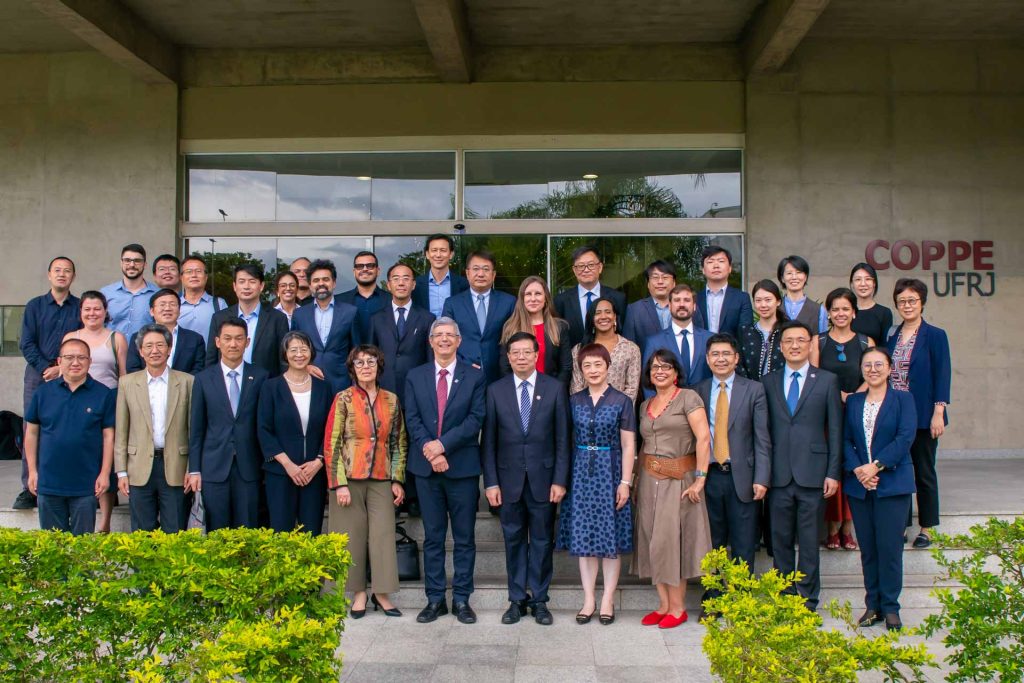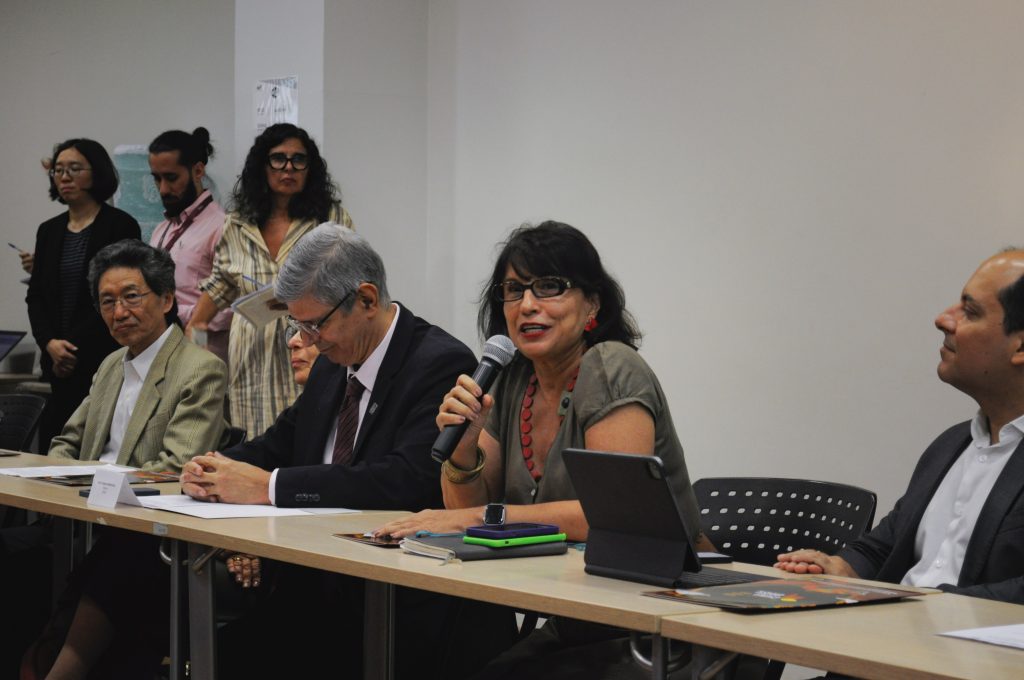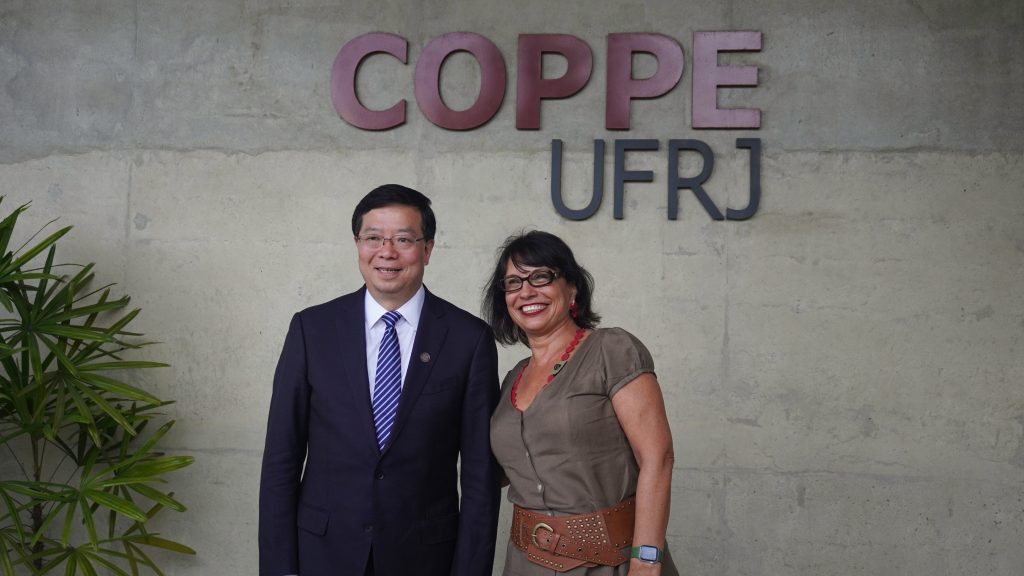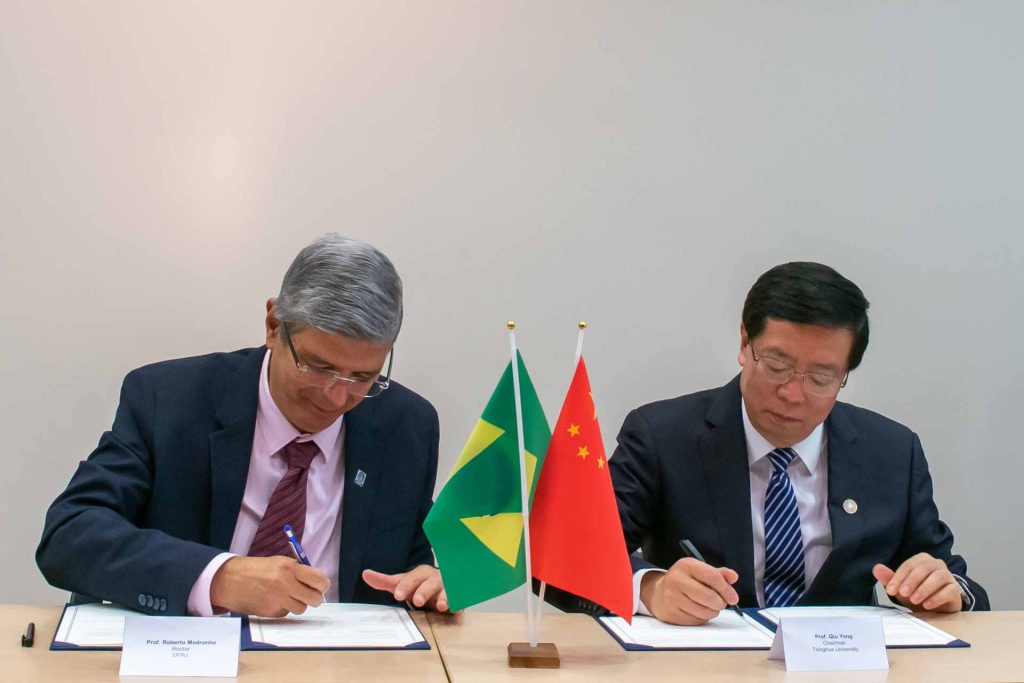Coppe and Tsinghua launch initiative for Amazon reforestation and bioenergy production
Planeta COPPE / Energy / Institutional News / Low Carbon / News
Date: 22/11/2024

Coppe/UFRJ and Tsinghua University presented this Thursday, November 21st, the “China-Brazil cooperation initiative in the reforestation of degraded lands in the Amazon: creating a bioenergy industrial chain and promoting the development of low carbon and poverty reduction”. The proposal seeks to combine technological innovation with environmental and social sustainability.
The initiative is aligned with the Action Plan for the Prevention and Control of Deforestation in the Legal Amazon (PPCDAm) and meets Embrapa’s initiatives in sustainable agriculture and agroforestry research. There are 31 million hectares of deforested and degraded land in the Brazilian Amazon, especially in the State of Pará. The project aims to cultivate oleaginous species, such as palm, to produce biofuels for ocean transport — a sector with a great demand for low carbon solutions.
Strategic Partnership and advanced technology

According to Coppe director, professor Suzana Kahn, Coppe and Tsinghua University, partners in the China-Brazil Center for Climate Change and Innovative Technologies for Energy, have experience in researching technological routes in biodiesel production.
“For ten years we have seeked a more efficient, more sustainable production. But, we needed to join all the links. If you only have a market for biodiesel or only have the producer, you cannot connect the chain. With the necessity for Brazil to recover degraded lands in the Amazon Forest, there’s a great opportunity for producers to plant certain oilseeds, such as palm, for biodiesel production, but there needs to be a demand. In our case, this demand will come from Cosco Shipping, one of the world’s leading providers of integrated container transport services. This way, Cosco’s fleet on the Brazil-China route will start using biodiesel produced here. The technology developed by Coppe will be applied both in the previous part (production) and the post (market use).
To enable the initiative, a broad articulation was promoted, involving key actors such as the Ministry of Agriculture, Livestock and Food Supply, Embrapa, Abrapalma, Suzano, Raízen, Binatural, Tus-Deqing Bioenergy and Cosco Shipping. According to Suzana, this integration increases the chances of success by structuring a robust and sustainable commodity chain.
Next steps and expected impact

The next step will be the drafting and signing of a letter of intent between the institutions and companies involved in the Initiative. “The proposal for this letter of intent has as its base the recent bilateral agreements between our countries, reflecting our responsibility in leading by example with actions to face climate change and energy transition challenges. This partnership shall establish an entire biodiesel commodity chain in Brazil prioritizing raw material from the North of Brazil and sectors known as ‘hard-to-abate’ such as ocean transport”, explained professor Suzana Kahn.
It is estimated that the sector shall receive an investment of 50 billion reais in the next decade, according to data from the Ministry of Agriculture. The adoption of the B25 blend (25% of biodiesel in diesel) can generate savings of 10,5 billion reais in the trade balance, create 1,5 million jobs, benefit 540 mil family farmers and reduce 80 million tonnes of CO₂ emission.
According to the Brazilian Association of Palm Oil Producers (Abrapalma), out of the main oilseeds, palm is the one that guarantees the highest productivity per hectare, being therefore the most sustainable. In addition, it generates 8x more jobs and 3x more income than soybean oil production, per cultivated hectare.
Academic partnership reinforced

On the same day, Coppe welcomed the rectors of UFRJ, professor Roberto Medronho, e Tsinghua University, professor Qiu Yong, for the signing of a memorandum of understanding (MOU) for academic and scientific cooperation, and another related to the “ China-Latin America Youth Responding to Global Challenges Program”.
Qiu Yong highlighted that both universities (UFRJ and Tsinghua) are very strong in the Engineering department and that the agreement signing marks the beginning of a new chapter in this partnership.
The signed memoranda and the Initiative discussed are part of a set of 37 agreements signed by president Lula and Chinese president Xi Jinping, regarding themes such as agribusiness, education, technological cooperation and investments.
- Amazon Rainforest
